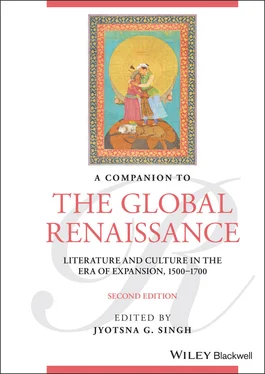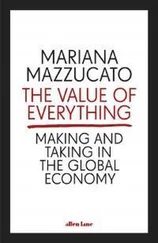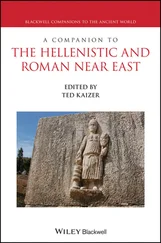A Companion to the Global Renaissance
Здесь есть возможность читать онлайн «A Companion to the Global Renaissance» — ознакомительный отрывок электронной книги совершенно бесплатно, а после прочтения отрывка купить полную версию. В некоторых случаях можно слушать аудио, скачать через торрент в формате fb2 и присутствует краткое содержание. Жанр: unrecognised, на английском языке. Описание произведения, (предисловие) а так же отзывы посетителей доступны на портале библиотеки ЛибКат.
- Название:A Companion to the Global Renaissance
- Автор:
- Жанр:
- Год:неизвестен
- ISBN:нет данных
- Рейтинг книги:5 / 5. Голосов: 1
-
Избранное:Добавить в избранное
- Отзывы:
-
Ваша оценка:
- 100
- 1
- 2
- 3
- 4
- 5
A Companion to the Global Renaissance: краткое содержание, описание и аннотация
Предлагаем к чтению аннотацию, описание, краткое содержание или предисловие (зависит от того, что написал сам автор книги «A Companion to the Global Renaissance»). Если вы не нашли необходимую информацию о книге — напишите в комментариях, мы постараемся отыскать её.
An innovative collection of original essays providing an expansive picture of globalization across the early modern world, now in its second edition A Companion to the Global Renaissance: Literature and Culture in the Era of Expansion, 1500–1700, Second Edition
Companion’s
A Companion to the Global Renaissance
cum
A Companion to the Global Renaissance: Literature and Culture in the Era of Expansion, 1500–1700, Second Edition
A Companion to the Global Renaissance — читать онлайн ознакомительный отрывок
Ниже представлен текст книги, разбитый по страницам. Система сохранения места последней прочитанной страницы, позволяет с удобством читать онлайн бесплатно книгу «A Companion to the Global Renaissance», без необходимости каждый раз заново искать на чём Вы остановились. Поставьте закладку, и сможете в любой момент перейти на страницу, на которой закончили чтение.
Интервал:
Закладка:
NOTES
1 1 See Wood for a good summary of the debate by a Marxist with an “England first” perspective. Linebaugh and Rediker, alternatively, have attempted to present what might be called an “oceanic” Marxist view of the emergence of capitalism (see note 8).
2 2 This description of the importance of “geography” appears at the opening of Smith’s Bermuda chapter (Book V) in the Generall History of Virginia, 338–391, but he lifts it, as the bulk of the volume, from other period travel writing. See, for example, Purchas, 44.
3 3 See Bewes for a discussion of the continued relevance of “reification” as a concept of social analysis.
4 4 In the early modern period, the increasing alienation and dislocation imposed by the commodification of labor are complicated by the ties of personal debt that emerge in a cash-poor society such as England without credit cards or banks, but the implications of these ties are not the same, affectively or materially, as a “commons.” On debt, see Muldrew.
5 5 The literature on vagrancy is rich – and expanding. See, for example, Beier, Dionne and Mentz, Fumerton, and Woodbridge.
6 6 On Norwood, see Bach (on colonial mapping), chapter 2, especially 99–106, and Skura (on spiritual autobiography), as well as the Dictionary of National Biography.
7 7 One must use care in comparing peoples in different times and places so as not to fall into the “Time and the Other” dilemma (Fabian). I am not suggesting that the “Devil” that emerges in the situations Taussig describes are the same as the Satan of primitive accumulation in England, but it is certainly worth seeing that the imposition of the market has the devil in it to many peoples confronted with it for the first time, since this is a useful corrective to the widespread assumption today that the market is simply “normal.”
8 8 Linebaugh and Rediker track the emergence of an Atlantic economy in this way; even more expansively, Balasopoulos, 122–156, has imported the concept of the “oceanic” into early modern studies and usefully deployed it in a study of More’s Utopia. I build on his insights here.
9 9 Linebaugh and Rediker, too, use the example of the wreck of the Sea Venture as the core of their first chapter, and I extend their excellent work here.
10 10 See Marx (1976, 931–940) for other illustrations of the ways that colonialism could teach ordinary Europeans how unequal property relations worked to their disadvantage (he does not take into account here, alas, the lessons it might offer to native peoples).
11 11 I have used the Sheed translation of Augustine because I like it, but also given page numbers for the Latin.
12 12 On “weapons of the weak,” see Scott.
REFERENCES AND FURTHER READING
1 Anderson, Benedict. Imagined Communities: Reflections on the Origin and Spread of Nationalism, revised. London: Verso, 1991.
2 Augustine. Confessions. Ed. James J. O’Donnell. Oxford: Clarendon Press, 1992.
3 Augustine. Confessions. Trans. F. J. Sheed. Indianapolis: Hackett Publishing Company, 1993.
4 Bach, Rebecca. Colonial Transformations: The Cultural Production of the New Atlantic World. New York: Palgrave, 2000.
5 Balasopoulos, Antonis. “‘Suffer a Sea Change’: Spatial Crisis, Maritime Modernity, and the Politics of Utopia.” Cultural Critique 63 (2006): 122–156.
6 Bartolovich, Crystal. “Learning from Crab: Primitive Accumulation, Migration, Species Being,” in The Routledge Handbook on Shakespeare and Animals. Eds. Holly Dugan and Karen Raber. New York: Routledge, 2020.
7 Beier, A. L. Masterless Men: The Vagrancy Problem in England, 1560–1640. London: Methuen, 1985.
8 Bewes, Anthony. Reification, or the Anxiety of Late Capitalism. London: Verso, 2002.
9 Dionne, Craig and Steve Mentz, Eds. Rogues and Early Modern English Culture. Ann Arbor: University of Michigan Press, 2004.
10 Fabian, Johannas. Time and the Other. New York: Columbia University Press, 1983.
11 Fumerton, Patricia. Unsettled: The Culture of Mobility and the Working Poor in Early Modern England. Chicago, IL: University of Chicago Press, 2006.
12 Gramsci, Antonio. Selections from the Prison Notebooks. Ed. and trans. Quintin Hoare and Geoffrey Nowell Smith. New York: International Publishers, 1971.
13 Hiltner, Ken. “Early Modern Ecocriticism,” in Return of Theory in Early Modern English Studies, Vol. 2. Eds. Paul Cefalu, Gary Kuchar and Bryan Reynolds. London: Palgrave, 2014.
14 Lacan, Jacques. Ecrits: A Selection. Trans. Alan Sheridan. New York: W.W. Norton & Company, 1977.
15 Lewis, Simon and Mark Maslin. The Human Planet: How We Created the Anthropocene. London: Penguin, 2018.
16 Linebaugh, Peter and Marcus Rediker. Many-Headed Hydra: Sailors, Slaves, Commoners and the Hidden History of the Revolutionary Atlantic. Boston: Beacon Press, 2000.
17 Locke, John. Second Treatise of Government. Indianapolis, IN: Bobbs-Merrill Company, 1952.
18 Lukacs, Georg. History and Class Consciousness. Trans. Rodney Livingstone. Cambridge, MA: MIT Press, 1971.
19 Marx, Karl. Critique of the Gotha Program. New York: International Publishers, 1966.
20 Marx, Karl. Capital, Volume 1. Trans. Ben Fowkes. London: Penguin Books, 1976.
21 Moore, Jason. Capitalism in the Web of Life. London: Verso, 2015.
22 Muldrew, Craig. The Economy of Obligation: The Culture of Credit and Social Relations in Early Modern England. New York: Palgrave, Macmillan, 1998.
23 Norwood, Richard. Journal of Richard Norwood. Ed. Wesley Frank Craven. New York: Scholars’ Facsimiles & Reprints, 1945.
24 Overton, Richard. An Arrow Against All Tyrants. London, 1646.
25 Purchas, Samuel. Purchas His Pilgrimage. London, 1613.
26 Said, Edward. The World, the Text and the Critic. Cambridge, MA: Harvard University Press, 1983.
27 Scott, James. Weapons of the Weak. New Haven, CT: Yale University Press, 1985.
28 Simmel, Georg. “Metropolis and Mental Life,” in Sociology of Georg Simmel. New York: Free Press, 1950, 409–424.
29 Skura, Meredith. “Early Modern Subjectivity and the Place of Psychoanalysis in Cultural Analysis: The Case of Richard Norwood,” in Whose Freud? Eds. Peter Brooks and Alex Woloch. New Haven, CT: Yale University Press, 2000, 211–220.
30 Smith, John. The Complete Works of Captain John Smith, Volume II, Generall History of Virginia. Ed. Philip L. Barbour. Chapel Hill: University of North Carolina Press, 1986.
31 Stallybrass, Peter. “Shakespeare, the Individual and the Text,” in Cultural Studies. Eds. Lawrence Grossberg, Cary Nelson and Paula Treichler. New York: Routledge, 1992, 593–612.
32 Strachey, William. “True Repertory of the Wreck,” in A Voyage to Virginia in 1609. Ed. Louis B. Wright. Charlottesville: University Press of Virginia, 1964, 62–72.
33 Taussig, Michael. The Devil and Commodity Fetishism in South America. Chapel Hill, NC: University of North Carolina Press, 1980.
34 Thirsk, Joan. The Agrarian History of England and Wales, IV. Cambridge: Cambridge University Press, 1967.
35 Thirsk, Joan. Economic Policy and Projects: The Development of a Consumer Society in Early Modern England. Oxford: Clarendon Press, 1978.
36 Tusser, Thomas. Five Hundreth Points of Good Husbandry. London, 1573.
37 Wheeler, John. Treatise of Commerce. London, 1601.
38 Winstanley, Gerrard. The Law of Freedom and Other Writings. Ed. Christopher Hill. Cambridge: Cambridge University Press, 1983.
39 Wood, Ellen Meiksins. The Origin of Capitalism: A Longer View. London: Verso, 2002.
40 Woodbridge, Linda. Vagrancy, Homelessness and English Renaissance Literature. Urbana, IL: University of Illinois Press, 2001.
3 Islam and Tamburlaine’s World-Picture
Интервал:
Закладка:
Похожие книги на «A Companion to the Global Renaissance»
Представляем Вашему вниманию похожие книги на «A Companion to the Global Renaissance» списком для выбора. Мы отобрали схожую по названию и смыслу литературу в надежде предоставить читателям больше вариантов отыскать новые, интересные, ещё непрочитанные произведения.
Обсуждение, отзывы о книге «A Companion to the Global Renaissance» и просто собственные мнения читателей. Оставьте ваши комментарии, напишите, что Вы думаете о произведении, его смысле или главных героях. Укажите что конкретно понравилось, а что нет, и почему Вы так считаете.












